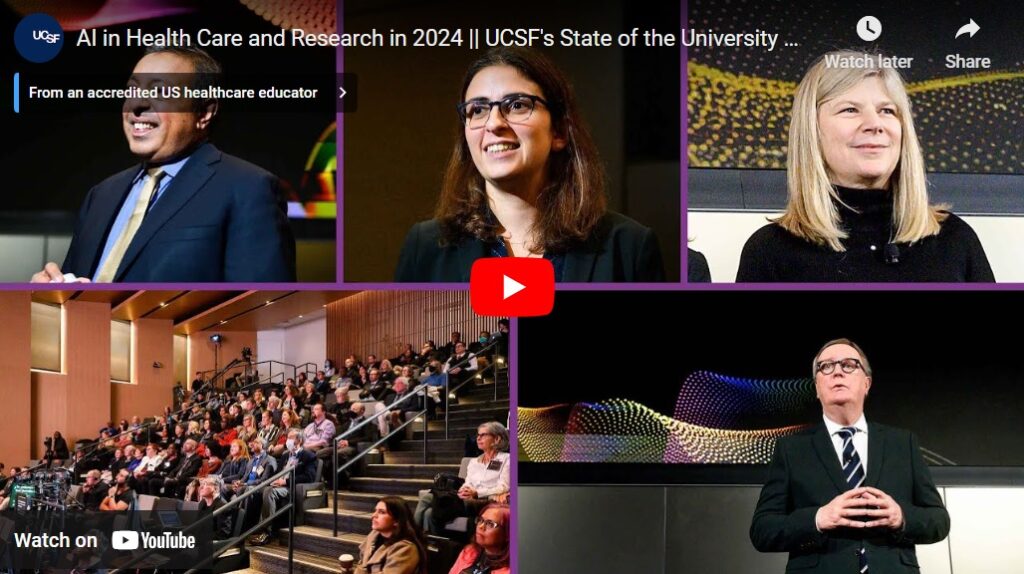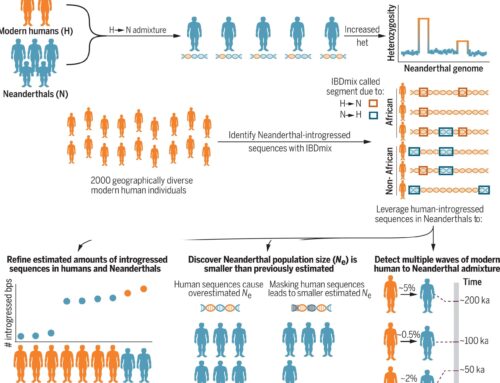Original article from UCSF. To watch video, go to youtube.
It is clear the next year will be a pivotal one for UCSF’s place in the growth and application of artificial intelligence in health care.
Chancellor Sam Hawgood, MBBS, spent a significant portion of his 2023 State of the University address outlining steps UCSF has taken in the last 12 months to lead the AI revolution across health care, emphasizing his desire that the University not simply be part of the AI wave, but that UCSF ultimately transform into “the leading AI-enabled academic life sciences university.”
There’s a real sense the University has that opportunity at its fingertips, according to a panel of UCSF AI experts that joined the chancellor on-stage during his speech.
Saying UCSF is “amazingly positioned to take advantage of this revolution on top of revolutions,” Atul Butte, MD, PhD, noted that other schools in the UC system – such as UC San Diego – are off and running when it comes to AI development and application, and that UCSF is already collaborating across the University of California Health System (UC Health) to curate a central database of over 9 million patients treated in the last decade.
“That all is available for research and development, conducted safely and responsibly,” said Butte, who is a Priscilla Chan and Mark Zuckerberg distinguished professor of pediatrics, bioengineering and therapeutic sciences, and epidemiology and biostatistics at UCSF, director of the UCSF Bakar Computational Health Sciences Institute, and chief data scientist for UC Health.
He pointed to talent within the walls of the University and its proximity to Silicon Valley as top reasons UCSF is well positioned to excel at this stage in the growth of AI.
“It’s fair to say UCSF has always been in the business of building tools that don’t exist today,” Butte said. “It’s going to be no different for artificial intelligence. We’re going to see more predictive models [and] predictive tools, especially using text and images. Those have been always the hardest to get to with computers and AI. We’re going to get text summarization, understanding the care of 1,000, perhaps 10,000 patients [at once].”
That kind of access will enable researchers and clinicians to see where UCSF is missing care and opportunities to deliver expertise to entire populations, Butte said.
Also joining Hawgood on-stage as panelists were Sara Murray, MD, MAS, vice president, chief health AI officer and associate chief medical information officer for UCSF Health, and UCSF associate professor of clinical medicine, and Tanja Kortemme, PhD, professor of bioengineering and therapeutic sciences at UCSF, Chan Zuckerberg investigator, director of the UCSF Graduate Program in Biophysics, and UCSF School of Pharmacy vice dean of research.
“We want to be the leading health system for the use of trustworthy AI at scale to address the most pressing problems in health care,” Murray said.




